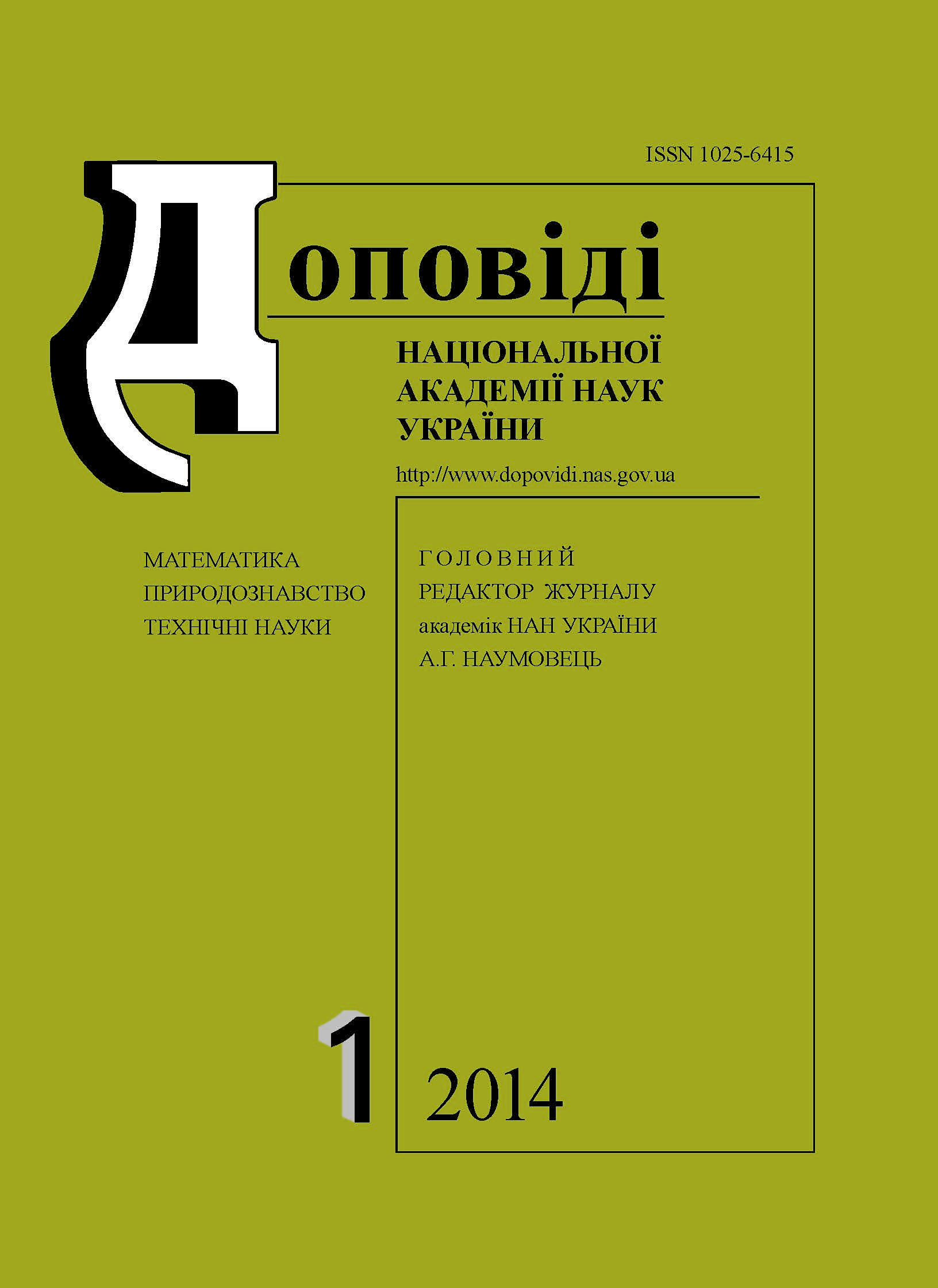How do exogenous chemical factors affect the activity of the wheat genome? A study using the RNA/DNA ratio
DOI:
https://doi.org/10.15407/dopovidi2014.01.168Keywords:
activity, chemical factors, DNA, genome, RNA, wheatAbstract
This paper presents a study of the wheat plant response to the effect of the chemical factor (methisazon) at the level of genome reaction using the RNA/DNA ratio. We established a differential character of the wheat genome functioning in the process of growth using the RNA/DNA ratio and indicators of the transcriptional activity of ribosomal genes. We found the opposite directionality of changes in the RNA/DNA ratio and in the growth rate of leaves in all studied plants. This finding is supported by the presence of a negative correlation between these parameters. We suggest to use the RNA/DNA ratio for the quantitative evaluation of the impact level of chemical factors on the functional activity of the plant genome and the growth rate of plants.
Downloads
References
Hirayama T., Shinozaki K. Plant J., 2010, 61: 1041–52. https://doi.org/10.1111/j.1365-313X.2010.04124.x
Ideker T., Galitski T., Hood L. Annu. Rev. Genomics Hum. Genet., 2001, 2: 343–372. https://doi.org/10.1146/annurev.genom.2.1.343
Long T. A., Brady S. M., Benfey P. N. Annu. Rev. Cell Dev. Biol., 2008, 24: 81–103. https://doi.org/10.1146/annurev.cellbio.24.110707.175408
Rockman M. V., Kruglyak L. Nature Rev. Genet., 2006, 7: 862–872. https://doi.org/10.1038/nrg1964
Heinrich S., Valentin K., Frickenhaus S. et al. PLoS ONE, 2012, 7, Iss. 8: e44342. https://doi.org/10.1371/journal.pone.0044342
Quenelle D. C., Keith K. A., Kern E. R. Antiviral Res., 2006, 71, Iss. 1: 24–30. https://doi.org/10.1016/j.antiviral.2006.02.010
Levin H. G., Sharek K. M., Johnson K. M. et al. Adv. space res., 2000, 26, No. 2: 311–314. https://doi.org/10.1016/S0273-1177(99)00577-3
Martynenko O. I., Kyrylenko T. K., Alkhimova O. G. Dopov. Nac. akad. nauk Ukr., 2009, No. 2: 179–183 (in Russian).
Ausubel F. M., Brent R., Kingston R. E. et. al. (Eds.). Short protocols in molecular biology. 4th ed. New York: Wiley, 1999: 4–26.
Chicharo M. A., Chicharo L. Int. J. Mol. Sci., 2008, 9: 1453–1471. https://doi.org/10.3390/ijms9081453
Tishchenko E. N., Kurchy V. M., Petrov I. A. Ukr. biokhim. zhurn., 1999, 71, No. 5: 29–33.
Van Katz V. A., Thulke O. U., Conrath U. A. Plant Physiol., 1998, 117: 1333–1339. https://doi.org/10.1104/pp.117.4.1333
Kharina A., Zaets I., Ovcharenko L. et al. Sepsis, 2011, 4, No. 1: 73–78.
Umezawa T., Fujita M., Fujita Y. et al. Curr. opinion biotechnol., 2006, 17, No. 2: 113–122. https://doi.org/10.1016/j.copbio.2006.02.002
Downloads
Published
How to Cite
Issue
Section
License
Copyright (c) 2025 Reports of the National Academy of Sciences of Ukraine

This work is licensed under a Creative Commons Attribution-NonCommercial 4.0 International License.



